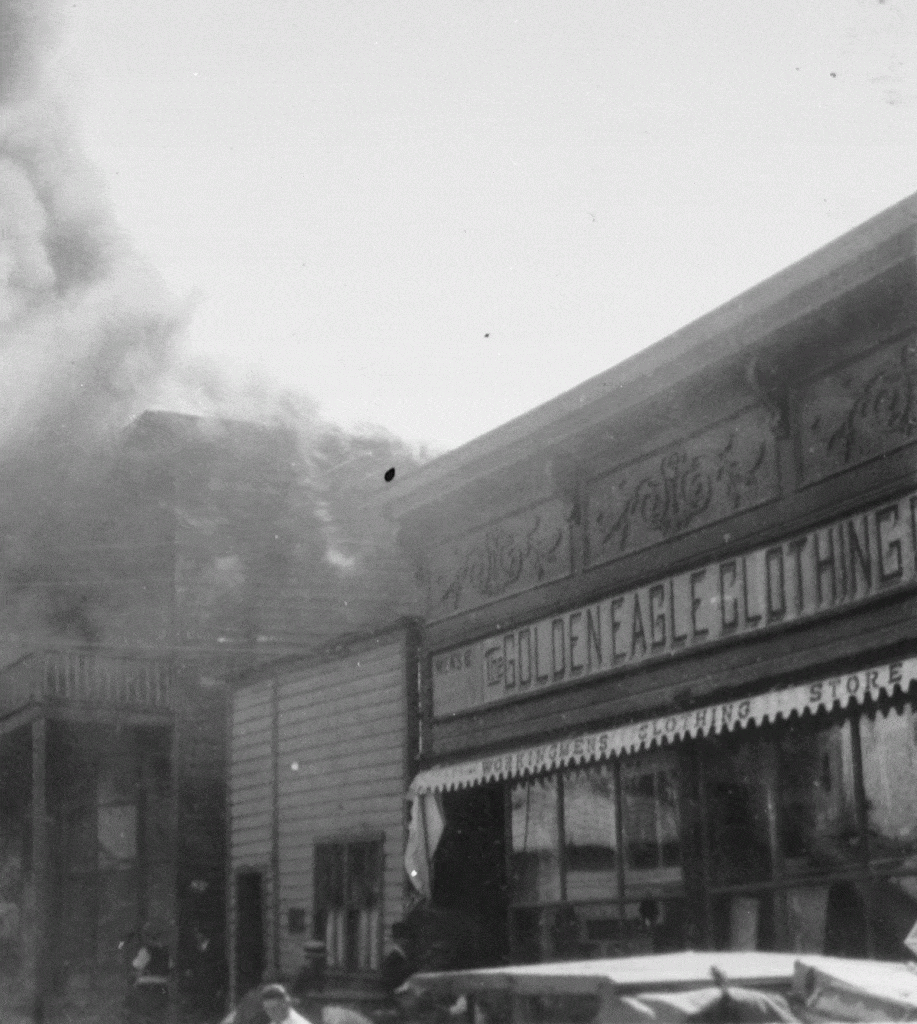By October 1919, World War I had officially been over for nearly a year and life, at least in the United States, was getting back to normal. For Park City merchant Hyrum Weisburg, however, a surprising reminder of the war was about to show up on his doorstep.
Hyrum Weisburg had immigrated to the United States in 1907 and shortly thereafter settled in Utah. In 1909 he and his wife filed a Declaration of Intention with the Salt Lake City courts, the first step in the naturalization process. At the time, the path to US citizenship was two-fold. The first step was the Declaration, in which immigrants stated their intention to renounce allegiance to their prior country of citizenship. The second step came several years later when the individual returned to court, usually with witnesses, to present evidence of their active and engaged membership in the community. If all went well, the judge granted the applicants citizenship.
The Weisburg family was naturalized in 1916. In 1917, they moved to Park City and in August of that year, Hyrum opened a gentlemen’s clothing store at 325 Main Street. Golden Eagle, as it was called, quickly became popular with Parkites and just six months later, Hyrum expanded the store.

Credit: Park City Historical Society and Museum, Wilma Larremore Collection
Hyrum and his wife Rose were both from Galicia, a region in Eastern Europe then under the control of the Austro-Hungarian Empire. When war broke out, the region saw heavy fighting. While many Americans are familiar with the trench warfare common on the Western Front, the characteristics of the Eastern Front were different. Power tended to shift more often and with more troop movement than in the west. In the early months of the war, Russia quickly gained control of the region, but only a short time later in 1915, Germany and Austria-Hungary had pushed Russian forces back. The shifts created an atmosphere of confusing chaos.
Worried about his family, Hyrum sent a letter to his mother in 1914. As later reported in the Park Record, “the town in which [his family] lived had been completely destroyed by the ravages of war, and apparently the family scattered in all directions.” The letter was never answered. Two years later in 1916, Hyrum wrote four other letters and mailed them addressed to a rabbi in the hopes that he could locate his family. Those, too, were never acknowledged. In October 1919, all five letters reappeared in his post box right here in Park City. They’d never made it to their destinations.
Happily, while his letters had traversed Europe and the United States over the course of five years, Hyrum had heard, though indirectly, that his mother and “other loved ones” were alive.
Hyrum, Rose, and their children only lived in Park City until 1920. Due to health problems and hoping to be closer to their relatives who lived here in the States, Hyrum sold his share of the Golden Eagle to his friend Morris Wolf and moved with his family to New York City.